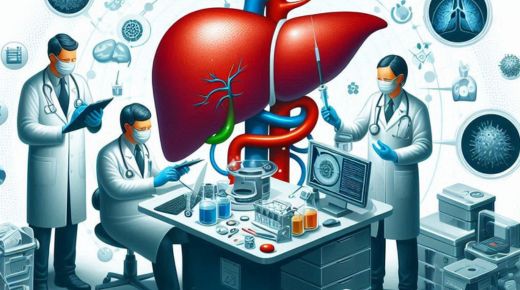
Internists play a crucial role in the treatment of liver diseases. They provide comprehensive care, from diagnosis to management. The expertise of internists ensures effective treatment plans tailored to each patient’s needs. In places like primary care asheboro nc, internists are essential in guiding patients through their health journeys. Their deep understanding of liver function and diseases allows for early detection and preventive measures. By working closely with specialists, internists optimize patient outcomes in liver disease care.
Understanding Liver Diseases
Liver diseases encompass a variety of conditions. From fatty liver to hepatitis to cirrhosis, the liver can face many challenges. Each condition requires specific attention and care. Internists are equipped to manage these through regular check-ups and routine tests.
The Role of Diagnosis
Early detection is vital in liver disease management. Internists conduct thorough assessments to identify the earliest signs of liver trouble. They may recommend blood tests or imaging studies to get a clear picture of liver health. By catching issues early, internists can initiate treatment before problems worsen.
Coordinated Care with Specialists
Internists often collaborate with hepatologists, who specialize in liver diseases. This partnership ensures that patients receive well-rounded care. Internists handle the overall health of the patient, while specialists focus on targeted liver therapies. Together, they create a comprehensive treatment plan.
Monitoring and Maintenance
Once a treatment plan is in place, monitoring is crucial. Internists schedule regular follow-ups to track progress. They adjust treatments based on the patient’s response. This ongoing care is key to managing chronic liver conditions, helping patients maintain a better quality of life.
Preventive Measures
Preventive care is equally important. Internists guide patients on lifestyle changes to support liver health. They may suggest dietary adjustments, exercise routines, or vaccinations to prevent liver infections. These proactive steps can prevent disease progression.
The Impact of Lifestyle Changes
| Lifestyle Change | Potential Benefits |
| Healthy Diet | Reduces fatty liver risk |
| Regular Exercise | Improves liver function |
| Limiting Alcohol | Prevents liver damage |
Internists help patients understand how simple changes can make a big difference. By educating on these adjustments, they empower patients to take control of their liver health.
Research and Innovations
Internists stay updated on the latest research and treatments. They incorporate new findings into their practice to provide the best care possible.
Conclusion
The role of internists in liver disease treatment is multifaceted. From diagnosis to long-term care, they are central to patient well-being. By working with specialists and focusing on prevention, internists help manage liver diseases effectively. Their commitment to continuous learning ensures they provide the most up-to-date care. For anyone facing liver health issues, internists provide a reliable and knowledgeable partner in their health journey.